-
 Bitcoin
Bitcoin $77,741.2042
-2.10% -
 Ethereum
Ethereum $1,483.7084
-5.24% -
 Tether USDt
Tether USDt $0.9996
0.01% -
 XRP
XRP $1.8283
-1.85% -
 BNB
BNB $556.0486
-0.39% -
 USDC
USDC $1.0002
0.02% -
 Solana
Solana $107.2186
-1.21% -
 Dogecoin
Dogecoin $0.1472
-1.84% -
 TRON
TRON $0.2292
-2.15% -
 Cardano
Cardano $0.5762
-1.14% -
 UNUS SED LEO
UNUS SED LEO $9.1349
1.86% -
 Toncoin
Toncoin $3.0824
-0.54% -
 Chainlink
Chainlink $11.4627
-1.15% -
 Avalanche
Avalanche $16.8086
-1.40% -
 Stellar
Stellar $0.2234
-1.98% -
 Hedera
Hedera $0.1549
-2.35% -
 Shiba Inu
Shiba Inu $0.0...01103
-2.35% -
 Sui
Sui $1.9882
-1.59% -
 MANTRA
MANTRA $6.2625
-0.24% -
 Bitcoin Cash
Bitcoin Cash $275.4681
-0.58% -
 Polkadot
Polkadot $3.4797
-3.23% -
 Dai
Dai $1.0003
0.02% -
 Litecoin
Litecoin $70.7217
-0.76% -
 Ethena USDe
Ethena USDe $0.9986
-0.03% -
 Bitget Token
Bitget Token $4.0982
-2.40% -
 Hyperliquid
Hyperliquid $12.3725
3.36% -
 Pi
Pi $0.5663
-2.21% -
 Monero
Monero $195.2899
-5.54% -
 OKB
OKB $51.4452
-1.06% -
 Uniswap
Uniswap $4.8766
-5.24%
How to earn commissions through NFT market platforms?
Earn commissions on NFT platforms by creating and selling your own NFTs, acting as an affiliate, or offering related services like graphic design and marketing.
Apr 05, 2025 at 02:00 am
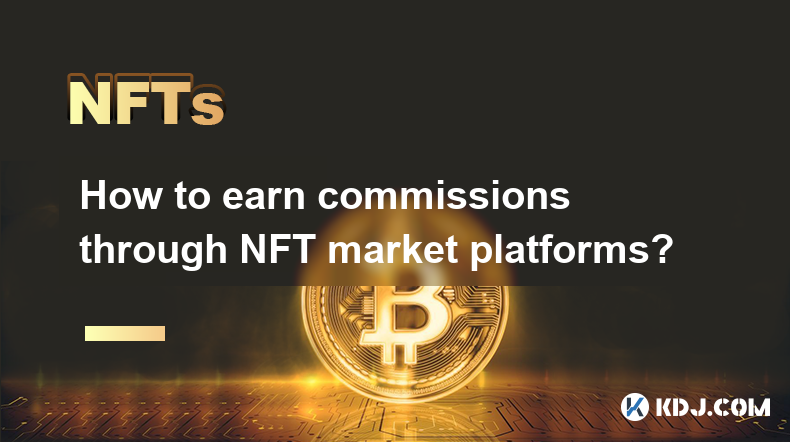
Earning commissions through NFT market platforms is an enticing opportunity for those looking to engage with the growing digital asset space. This article will delve into the various ways you can earn commissions, from creating and selling your own NFTs to acting as an intermediary or affiliate for existing platforms. We'll explore the steps, strategies, and platforms that can help you maximize your earnings in the dynamic world of NFTs.
Understanding NFT Commissions
NFTs, or Non-Fungible Tokens, are unique digital assets that can represent ownership of digital art, collectibles, music, and more. When it comes to earning commissions on NFT market platforms, there are several avenues you can explore. The most common methods include selling your own NFTs, acting as a marketplace affiliate, or providing services related to NFT creation and marketing.
Creating and Selling Your Own NFTs
One of the most direct ways to earn commissions through NFT market platforms is by creating and selling your own NFTs. This method requires creativity and an understanding of what appeals to the NFT community.
- Choose a platform: Popular platforms for selling NFTs include OpenSea, Rarible, and Foundation. Each has its own fee structure and audience, so choose one that aligns with your goals.
- Create your NFT: Use tools like Photoshop, Blender, or even simple platforms like Canva to create your digital artwork. Ensure it's unique and appealing to potential buyers.
- Mint your NFT: Most platforms allow you to mint your NFT directly on their site. This process usually involves a small fee, but it's necessary to turn your digital asset into an NFT.
- List your NFT: Set a price and list your NFT for sale. You can opt for a fixed price or an auction format, depending on your strategy.
- Promote your NFT: Use social media, NFT communities, and other marketing channels to attract buyers. The more visibility your NFT gets, the higher your chances of selling it.
Acting as a Marketplace Affiliate
Another way to earn commissions is by becoming an affiliate for an NFT marketplace. This involves promoting the platform and earning a percentage of the sales generated through your referral link.
- Sign up for an affiliate program: Platforms like OpenSea and Rarible offer affiliate programs. Check their terms and conditions to understand the commission structure.
- Promote the platform: Use your blog, social media, or other channels to share your affiliate link. Highlight the benefits of using the platform, such as low fees or a wide selection of NFTs.
- Track your referrals: Use the platform's tracking tools to monitor the sales generated through your link. You'll earn a commission on each sale, which can add up over time.
- Optimize your strategy: Experiment with different marketing tactics to see what works best for you. This could include targeted ads, content marketing, or even partnerships with other influencers.
Providing NFT-Related Services
If you have skills in areas like graphic design, marketing, or even blockchain development, you can offer services related to NFTs and earn commissions.
- Graphic design: Many artists need help turning their ideas into digital art. Offer your services to create high-quality NFTs that can be sold on various platforms.
- Marketing: Help artists and collectors promote their NFTs. This could involve creating social media campaigns, writing blog posts, or even managing their online presence.
- Blockchain development: If you're skilled in blockchain technology, you can offer services like smart contract development or NFT minting. These services are in high demand as the NFT market grows.
Choosing the Right Platform
Selecting the right NFT market platform is crucial for maximizing your commissions. Each platform has its own strengths and weaknesses, so it's important to choose one that aligns with your goals.
- OpenSea: Known for its wide range of NFTs and user-friendly interface, OpenSea is a popular choice for both creators and buyers. It offers an affiliate program and low fees, making it a good option for earning commissions.
- Rarible: Rarible is another popular platform that allows creators to mint and sell their NFTs. It also offers an affiliate program and has a strong community of artists and collectors.
- Foundation: This platform is known for its curated selection of NFTs and high-quality artwork. While it's more selective, it can be a good choice for creators looking to reach a more discerning audience.
Maximizing Your Earnings
To maximize your earnings through NFT market platforms, it's important to stay informed about market trends and adapt your strategies accordingly.
- Stay updated: Follow NFT news and trends to understand what types of NFTs are in demand. This can help you create or promote NFTs that are more likely to sell.
- Diversify your income streams: Don't rely on just one method of earning commissions. Consider creating your own NFTs, acting as an affiliate, and offering related services to diversify your income.
- Engage with the community: Join NFT communities on platforms like Discord and Twitter to network with other creators and collectors. This can help you stay informed and find new opportunities for earning commissions.
- Experiment with different strategies: Try different marketing tactics, pricing strategies, and platforms to see what works best for you. Be willing to adapt and learn from your experiences.
Understanding Fees and Commissions
When earning commissions through NFT market platforms, it's important to understand the fees and commission structures involved.
- Platform fees: Most NFT platforms charge a fee for listing and selling NFTs. This can range from a small percentage of the sale price to a fixed fee.
- Transaction fees: Blockchain networks like Ethereum charge transaction fees, known as gas fees, for minting and transferring NFTs. These fees can vary depending on network congestion.
- Affiliate commissions: If you're acting as an affiliate, you'll earn a percentage of the sales generated through your referral link. This percentage can vary depending on the platform and the type of NFT sold.
- Service fees: If you're offering services related to NFTs, you'll need to set your own fees. Consider the value you're providing and the going rate for similar services in the market.
Legal and Ethical Considerations
As with any business venture, it's important to consider the legal and ethical implications of earning commissions through NFT market platforms.
- Copyright and intellectual property: Ensure that you have the rights to any artwork or content you're selling as an NFT. Infringing on someone else's copyright can lead to legal issues.
- Transparency: Be transparent about your affiliate relationships and any commissions you earn. This builds trust with your audience and complies with advertising regulations.
- Fair pricing: Set fair prices for your NFTs and services. Overcharging can lead to negative feedback and damage your reputation in the community.
- Environmental impact: Some blockchain networks, like Ethereum, have been criticized for their high energy consumption. Consider the environmental impact of your NFT activities and explore more sustainable options, like layer 2 solutions or eco-friendly blockchains.
Common Questions About Earning Commissions Through NFT Market Platforms
Q: What are the most popular NFT market platforms for earning commissions?
A: Some of the most popular NFT market platforms for earning commissions include OpenSea, Rarible, and Foundation. Each platform offers different features and commission structures, so it's important to choose one that aligns with your goals.
Q: How can I create and sell my own NFTs?
A: To create and sell your own NFTs, you'll need to choose a platform, create your digital artwork, mint it as an NFT, list it for sale, and promote it to potential buyers. Platforms like OpenSea and Rarible make it easy to mint and sell your NFTs.
Q: What is an NFT affiliate program, and how does it work?
A: An NFT affiliate program allows you to earn commissions by promoting an NFT marketplace. You'll receive a unique referral link, and when someone makes a purchase through your link, you'll earn a percentage of the sale. Platforms like OpenSea and Rarible offer affiliate programs.
Q: What types of services can I offer to earn commissions in the NFT space?
A: You can offer a variety of services to earn commissions in the NFT space, including graphic design, marketing, and blockchain development. These services can help artists and collectors create, promote, and manage their NFTs.
Q: How can I maximize my earnings through NFT market platforms?
A: To maximize your earnings, stay updated on market trends, diversify your income streams, engage with the NFT community, and experiment with different strategies. Consider creating your own NFTs, acting as an affiliate, and offering related services to increase your earning potential.
Q: What are the fees and commissions associated with NFT market platforms?
A: NFT market platforms charge various fees, including platform fees for listing and selling NFTs, transaction fees for minting and transferring NFTs, and affiliate commissions for promoting the platform. Understanding these fees is crucial for maximizing your earnings.
Q: Are there any legal or ethical considerations when earning commissions through NFT market platforms?
A: Yes, there are several legal and ethical considerations, including copyright and intellectual property rights, transparency in affiliate relationships, fair pricing, and the environmental impact of blockchain networks. It's important to be aware of these considerations and act responsibly in the NFT space.
Disclaimer:info@kdj.com
The information provided is not trading advice. kdj.com does not assume any responsibility for any investments made based on the information provided in this article. Cryptocurrencies are highly volatile and it is highly recommended that you invest with caution after thorough research!
If you believe that the content used on this website infringes your copyright, please contact us immediately (info@kdj.com) and we will delete it promptly.
- BTFD Coin: The Next Big Meme Coin With Staking Rewards and a Play-to-Earn (P2E) Game
- 2025-04-09 16:00:13
- These 4 Altcoins (ETH, BNB, DEBO, SOL) Can Provide Insane Performance
- 2025-04-09 16:00:13
- Top 5 Performers from HTX’s Crypto Gem Hunt #2
- 2025-04-09 15:55:12
- TZ APAC Launches the Second Cohort of Its Fortify Labs Program, Targeting Startups Building on Tezos or Etherlink
- 2025-04-09 15:55:12
- Introducing A(i)gentFi, the One-Stop Shop for AI Agent Creation on ZKsync
- 2025-04-09 15:50:12
- Rain Labs Raises $15M From Galaxy Ventures, Goldcrest, Thayer, and Hard Yaka to Expand Its Global Reach
- 2025-04-09 15:50:12
Related knowledge
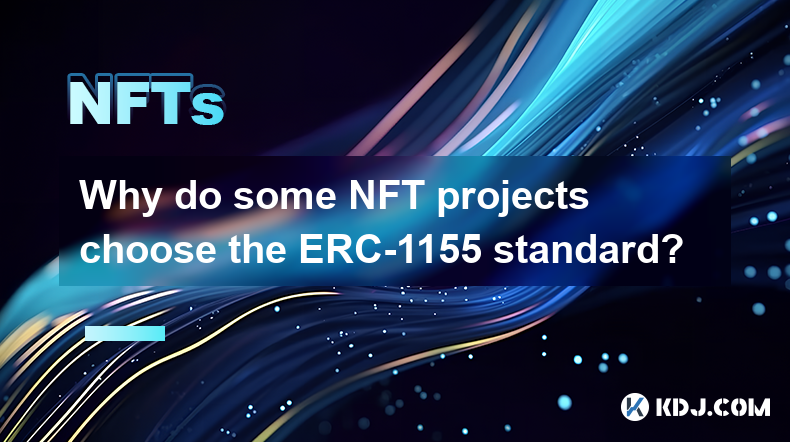
Why do some NFT projects choose the ERC-1155 standard?
Apr 08,2025 at 11:49am
The world of Non-Fungible Tokens (NFTs) has seen a significant rise in popularity and innovation, leading to the development of various token standards. Among these, the ERC-1155 standard has emerged as a versatile and efficient choice for many NFT projects. This article delves into the reasons why some NFT projects opt for the ERC-1155 standard, explor...
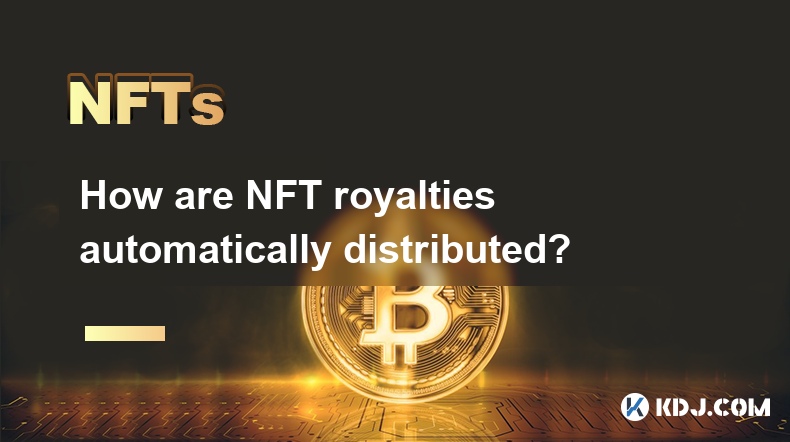
How are NFT royalties automatically distributed?
Apr 08,2025 at 08:14pm
NFTs, or Non-Fungible Tokens, have revolutionized the digital art and collectibles market by providing a way to prove ownership and authenticity of digital assets. One of the most intriguing features of NFTs is the ability to automatically distribute royalties to creators whenever their work is resold. This article will delve into the mechanisms behind ...
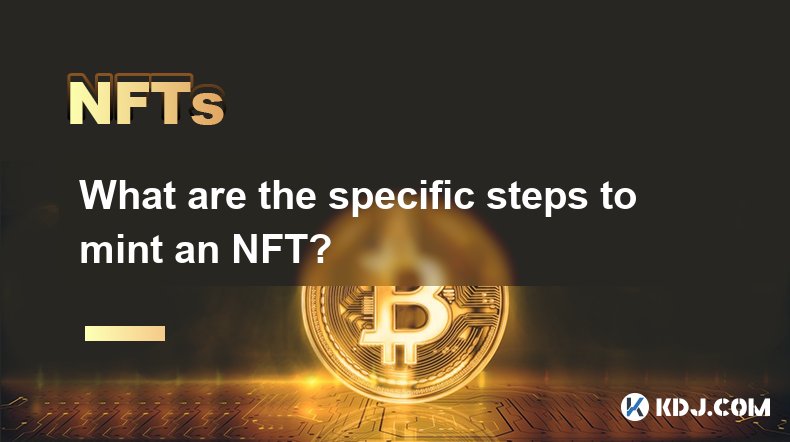
What are the specific steps to mint an NFT?
Apr 08,2025 at 05:22pm
Introduction to NFT MintingMinting an NFT, or Non-Fungible Token, involves creating a unique digital asset on a blockchain. This process allows artists, creators, and collectors to tokenize their work, ensuring its authenticity and ownership. Understanding the steps to mint an NFT is crucial for anyone looking to enter the world of digital collectibles....
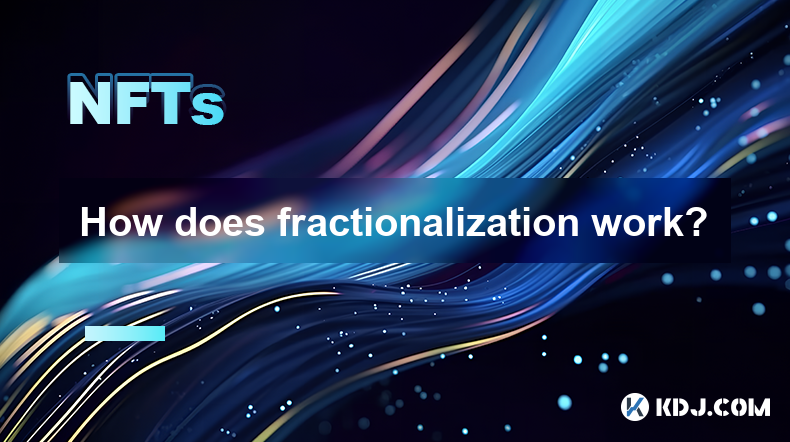
How does fractionalization work?
Apr 08,2025 at 07:42pm
How does fractionalization work? Fractionalization in the context of cryptocurrencies and blockchain technology refers to the process of dividing a single asset into smaller, more manageable pieces. This concept has revolutionized the way investors and users interact with high-value assets, making them more accessible and liquid. In this article, we wil...
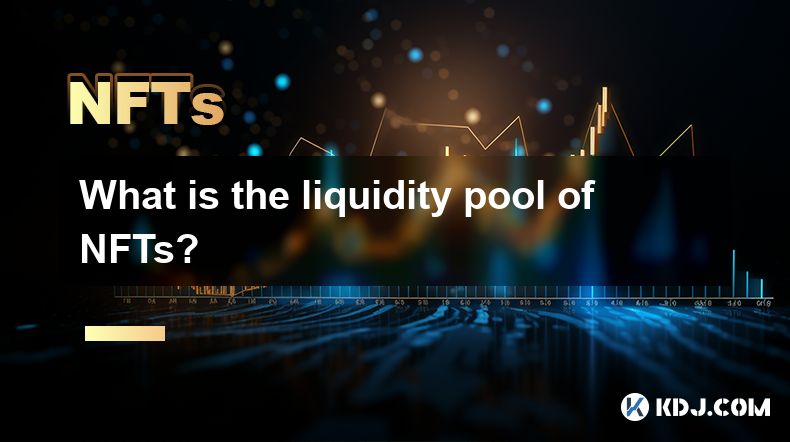
What is the liquidity pool of NFTs?
Apr 08,2025 at 05:35pm
The concept of liquidity pools has become increasingly popular within the cryptocurrency and decentralized finance (DeFi) ecosystems. While traditionally associated with token swaps, the idea has extended to the realm of Non-Fungible Tokens (NFTs). Liquidity pools for NFTs are mechanisms that facilitate the trading and exchange of these unique digital a...
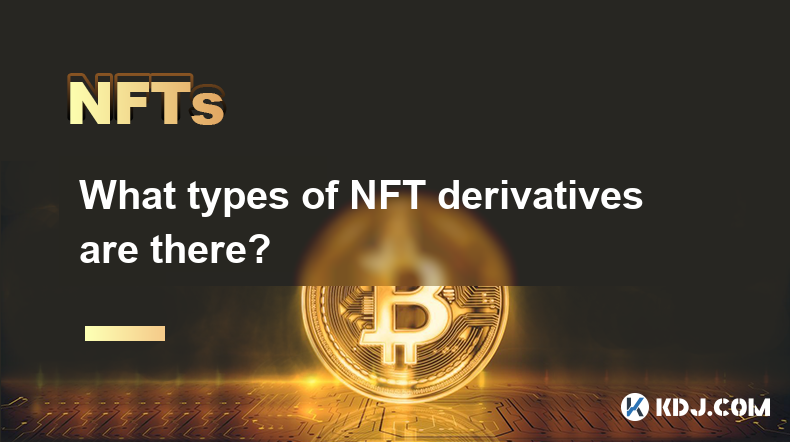
What types of NFT derivatives are there?
Apr 09,2025 at 02:14pm
Introduction to NFT DerivativesNFT derivatives are financial instruments that derive their value from the underlying non-fungible tokens (NFTs). These derivatives have gained popularity in the cryptocurrency space as they offer new ways for investors to engage with NFTs without directly owning them. In this article, we will explore the various types of ...

Why do some NFT projects choose the ERC-1155 standard?
Apr 08,2025 at 11:49am
The world of Non-Fungible Tokens (NFTs) has seen a significant rise in popularity and innovation, leading to the development of various token standards. Among these, the ERC-1155 standard has emerged as a versatile and efficient choice for many NFT projects. This article delves into the reasons why some NFT projects opt for the ERC-1155 standard, explor...

How are NFT royalties automatically distributed?
Apr 08,2025 at 08:14pm
NFTs, or Non-Fungible Tokens, have revolutionized the digital art and collectibles market by providing a way to prove ownership and authenticity of digital assets. One of the most intriguing features of NFTs is the ability to automatically distribute royalties to creators whenever their work is resold. This article will delve into the mechanisms behind ...

What are the specific steps to mint an NFT?
Apr 08,2025 at 05:22pm
Introduction to NFT MintingMinting an NFT, or Non-Fungible Token, involves creating a unique digital asset on a blockchain. This process allows artists, creators, and collectors to tokenize their work, ensuring its authenticity and ownership. Understanding the steps to mint an NFT is crucial for anyone looking to enter the world of digital collectibles....

How does fractionalization work?
Apr 08,2025 at 07:42pm
How does fractionalization work? Fractionalization in the context of cryptocurrencies and blockchain technology refers to the process of dividing a single asset into smaller, more manageable pieces. This concept has revolutionized the way investors and users interact with high-value assets, making them more accessible and liquid. In this article, we wil...

What is the liquidity pool of NFTs?
Apr 08,2025 at 05:35pm
The concept of liquidity pools has become increasingly popular within the cryptocurrency and decentralized finance (DeFi) ecosystems. While traditionally associated with token swaps, the idea has extended to the realm of Non-Fungible Tokens (NFTs). Liquidity pools for NFTs are mechanisms that facilitate the trading and exchange of these unique digital a...

What types of NFT derivatives are there?
Apr 09,2025 at 02:14pm
Introduction to NFT DerivativesNFT derivatives are financial instruments that derive their value from the underlying non-fungible tokens (NFTs). These derivatives have gained popularity in the cryptocurrency space as they offer new ways for investors to engage with NFTs without directly owning them. In this article, we will explore the various types of ...
See all articles























































































